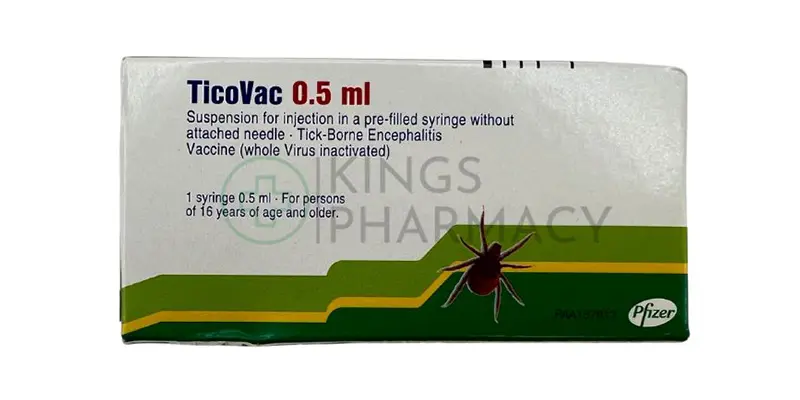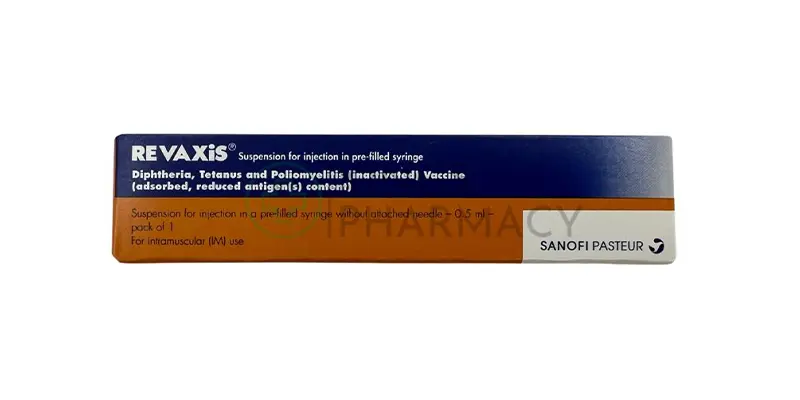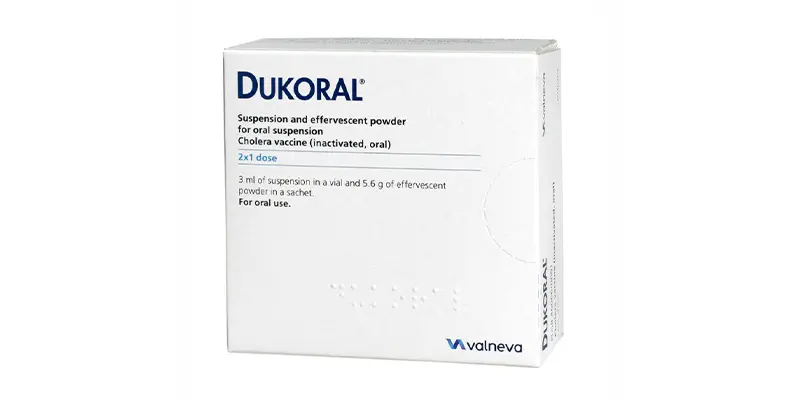Tick-Borne Encephalitis Vaccination
The tick-borne encephalitis vaccine offers crucial protection against a potentially severe viral infection transmitted by ticks. This vaccine is particularly important for individuals living in or traveling to regions where the disease is endemic, such as parts of Europe and Asia. By stimulating the body's immune response, the vaccine helps prevent the onset of encephalitis, which can cause inflammation of the brain and lead to serious neurological complications. With a recommended schedule of doses, it provides a vital safeguard for those at risk, ensuring better health outcomes and peace of mind.
Select Quantity
What is Tick-Borne Encephalitis?
Tick-borne encephalitis (TBE) is a viral infection transmitted through the bite of an infected tick. The disease primarily affects the central nervous system, potentially leading to serious complications such as meningitis, encephalitis (inflammation of the brain), and even long-term neurological damage. TBE is found in parts of Europe and Asia, particularly in wooded or grassy areas where ticks are common.
Symptoms of Tick-Borne Encephalitis
The symptoms of TBE can vary, but typically include:
- Fever
- Headache
- Muscle pain
- Fatigue In some cases, the illness progresses to more severe symptoms, including:
- Nausea and vomiting
- Confusion or changes in mental state
- Seizures
- Paralysis
Most cases of TBE occur in individuals who have been exposed to tick habitats, such as hiking, camping, or working outdoors in endemic areas.
Who Should Consider the TBE Vaccine?
The TBE vaccine is recommended for people who live in or travel to areas where the disease is prevalent. Individuals who are at higher risk include:
- Outdoor enthusiasts such as hikers, campers, and cyclists
- People living or working in endemic areas (forests, farms, rural areas)
- Veterinarians or others who may handle animals or ticks
- Laboratory workers who may handle tick-borne pathogens The vaccine is typically recommended for adults and children over the age of 1 who are planning to travel to or live in areas with high rates of TBE.
How Is the TBE Vaccine Administered?
The TBE vaccine is given as a series of three doses. The first dose provides initial protection, the second dose is administered 1 to 3 months later, and a third dose is given 5 to 12 months after the second dose to ensure full immunity. In some cases, a rapid vaccination schedule may be used for those who need quicker protection.
Effectiveness of the Vaccine
The TBE vaccine is highly effective in preventing the disease, with protection rates of up to 95%. Immunity usually develops 2 weeks after the second dose and lasts for several years. However, booster doses may be required for continued protection, especially for people at higher risk or those who will be frequently exposed to ticks.
Side Effects of the TBE Vaccine
Like most vaccines, the TBE vaccine is generally safe and well-tolerated. Common side effects include:
- Pain or swelling at the injection site
- Mild fever
- Headache
- Fatigue These side effects are usually temporary and resolve within a few days. Serious side effects are rare but can include allergic reactions. It’s important to discuss any allergies or concerns with your healthcare provider before receiving the vaccine.
When Should You Get the TBE Vaccine?
It is best to receive the TBE vaccine at least 2 to 3 weeks before traveling to an endemic area to allow the vaccine to provide adequate protection. Starting the vaccine series earlier (months in advance) is recommended for those planning extended stays or frequent exposure to ticks.
Additional Preventive Measures
While the TBE vaccine is highly effective, it’s important to combine vaccination with other preventive measures, such as:
- Wearing protective clothing, including long sleeves and pants
- Using tick repellents on exposed skin and clothing
- Checking for ticks after being outdoors, especially in wooded or grassy areas
- Seeking prompt medical attention if you develop symptoms after a tick bite
What is tick-borne encephalitis (TBE)?
Tick-borne encephalitis is a viral infection transmitted by ticks, primarily found in certain regions of Europe and Asia. It can lead to inflammation of the brain and central nervous system, potentially causing severe neurological symptoms.
Who should get the TBE vaccine?
The TBE vaccine is recommended for individuals who live in or travel to areas where TBE is endemic. This includes certain regions of Europe (e.g., parts of Austria, Germany, and Switzerland) and Asia. It's particularly advised for people who are at higher risk due to activities in tick-prone areas, such as hiking or camping.
How effective is the TBE vaccine?
The TBE vaccine is highly effective, providing robust protection against the virus. After completing the recommended vaccination schedule, the majority of individuals develop strong immunity that significantly reduces the risk of contracting tick-borne encephalitis.
What is the vaccination schedule?
The primary vaccination course for TBE typically involves three doses: the first and second doses are given 1 to 3 months apart, and the third dose is administered 5 to 12 months after the second dose. A booster dose is recommended every 3 to 5 years, depending on the risk level and guidelines.
Are there any side effects of the TBE vaccine?
Common side effects of the TBE vaccine are usually mild and may include pain or redness at the injection site, low-grade fever, or fatigue. Serious side effects are rare. If you experience severe reactions or symptoms beyond what is mentioned, consult a healthcare professional.
Is the TBE vaccine safe?
Yes, the TBE vaccine has been proven to be safe through extensive clinical trials and real-world use. It is approved by health authorities and recommended for use in areas where TBE is a concern.
Where can I find more information about the TBE vaccine?
For detailed information, you can refer to the Green Book published by the UK Department of Health, which provides comprehensive guidelines on vaccination. Additionally, your healthcare provider can offer personalized advice based on your travel plans and health status.










